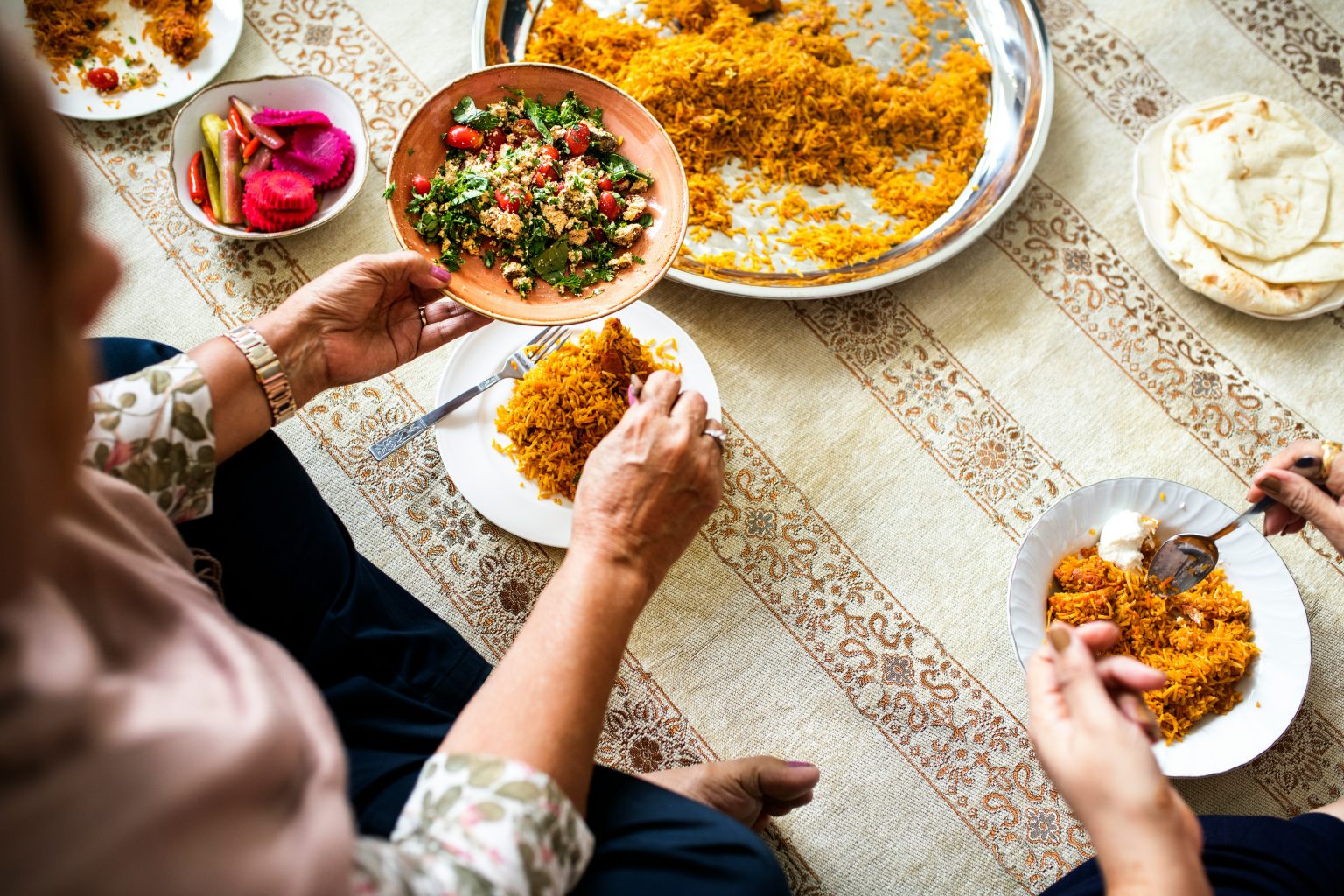For Muslim travelers, Europe’s capitals now offer more than monuments and museums; they’re home to thriving dining scenes where heritage meets hospitality. Across the continent, this cuisine isn’t just available, it’s celebrated, adapted, and woven into local cultures.
From rose-petal éclairs in Paris to canal-side satay in Amsterdam, here’s how five iconic cities are redefining faith-friendly food with flavor and flair.
London: Global, Grounded, and Gloriously Halal
Step off the plane at Heathrow, and London’s halal credentials become immediately apparent. This isn’t just tolerance, it’s integration at its finest.
Where to Go: Start your culinary journey in Brick Lane, where smoky Pakistani karahi bubbles in family-run kitchens like Aladin and Needoo Grill. Head to Edgware Road for Lebanese mezze at Maroush, open until 3 AM for late-night cravings. Green Lanes offers authentic Turkish experiences at Mangal 2, where whole lamb rotates over charcoal grills.
Insider Tips: Download the HalalTrip app before arrival, it maps over 500 certified restaurants citywide. For budget travelers, Borough Market’s vendors offer quality meals under £10. Upmarket diners should book Sketch in Mayfair, where wagyu meets halal certification in pink-hued luxury.
Transport Hack: The 25 bus route connects major halal districts, perfect for a progressive dinner crawl.
Paris: Where Faith Meets Fine Dining
Paris transforms halal dining from necessity into artistry. In Belleville’s winding streets, North African grandmothers still hand-roll couscous while their granddaughters reinvent French pastry traditions.
Must-Visit Neighborhoods: Barbès pulses with Maghrebi energy. Try L’Homme Bleu for tagine that simmers for hours. The Marais district showcases haute cuisine at L’As du Fallafel, where celebrities queue alongside tourists. For dessert, Maison Julien near République creates macarons in flavors like orange blossom and fig.
Practical Planning: Many halal restaurants close between 3-6 PM, so plan lunch early or dinner late. The Navigo weekly metro pass (€30) covers all zones and connects halal hotspots efficiently. Book ahead for weekend dining. Parisians embrace halal cuisine enthusiastically.
Many hotels in central areas, such as the 10th arrondissement, now cater to halal-conscious guests — filtering your options through travel platforms like Halalbooking can help simplify your search.
Berlin: Bold, Transparent, and Unapologetically Flavorful
Berlin’s approach to halal food mirrors its direct cultural personality: honest, innovative, and surprisingly diverse. Turkish-German fusion here isn’t fusion for fusion’s sake; it’s generations of immigrant families perfecting their craft.
Essential Stops: Kreuzberg’s Hasir claims to have invented döner kebab in 1971. Their lamb rotates continuously from dawn to midnight. Neukölln’s Tadim offers börek so flaky it shatters at first bite. For adventurous palates, try Kornkammer’s vegan halal currywurst: jackfruit and spices masquerading brilliantly as German tradition.
Budget-Friendly Tip: Berlin’s halal scene is remarkably affordable. A filling döner costs €4-6, while sit-down Turkish breakfasts rarely exceed €15 per person. The city’s excellent public transport day ticket (€8.80) connects all major halal districts.
Local Knowledge: Many restaurants display certificates prominently. This transparency builds trust and reflects Berlin’s straightforward culture.
Amsterdam: Heritage, Hospitality, and Halal by the Canal
Amsterdam’s halal dining scene flows as smoothly as its famous canals. Indonesian influences from colonial history blend with Turkish and Moroccan traditions, creating unique flavor combinations found nowhere else.
Culinary Quarters: De Pijp’s Albert Cuyp Market hosts halal stroopwafel stands using pectin instead of gelatin. Nieuwmarkt’s Café de Reiger serves halal Dutch classics. Think croquettes filled with lamb and herbs rather than traditional beef.
Canal-Side Dining: Restaurant Greetje near Centraal Station reimagines Dutch cuisine with halal principles, offering set menus featuring Indonesian-spiced lamb and halal cheese selections. Book canal-view tables in advance during the summer months.
Practical Advice: Rent bikes (€12-15/day) to navigate between districts efficiently. Many restaurants accept only Dutch bank cards, so carry cash or use contactless payment methods.
Rome: Ancient Streets, Modern Eats
Rome surprises with its evolving halal landscape. Near Piazza Vittorio, Egyptian cafés serve koshari until midnight, while Esquilino buzzes with South Asian flavors that would make Mumbai proud.
Authentic Experiences: Il Pentagrappolo offers halal Italian wines and pizza with certified pepperoni. Himalaya’s Treasure serves Bangladeshi biryani so aromatic that it perfumes entire cobblestone blocks. For breakfast, try Palazzo del Freddo’s halal gelato, yes, at 9 AM, because you’re in Italy.
Navigation Tips: Rome’s restaurants cluster around Termini Station, making them accessible via all metro lines. Many establishments align hours with prayer times. Call ahead to confirm opening times.
Planning Your Food Trail
Modern tools make travel seamless, and you can find accommodation that caters to your specific needs. The Zabihah app crowd-sources restaurant reviews, while HalalTrip maps certified accommodations near mosque locations. Many European hotels now offer suhoor services and prayer facilities, and you can request these when booking.
Budget Planning: Expect to spend €25-40 daily on meals in London and Paris, €15-25 in Berlin and Amsterdam, €20-30 in Rome. Street food costs significantly less while maintaining quality.
Halal dining across Europe represents more than accommodation; it embodies culinary evolution. Whether savoring mint tea beside Amsterdam’s canals or discovering rosewater pastries in Parisian patisseries, these cities offer nourishment that honors both faith and flavor. The movement continues growing, driven by chefs who understand that authentic hospitality welcomes everyone to the table.



